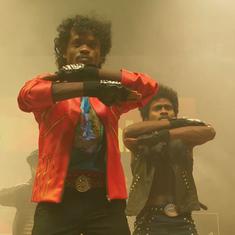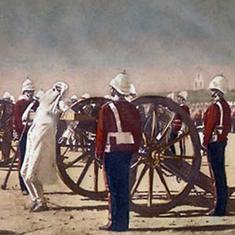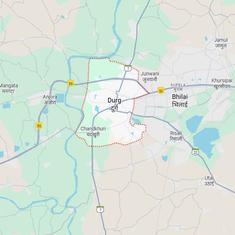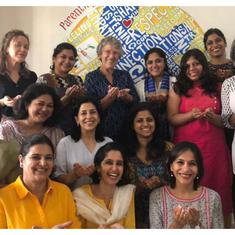Prime Minister Narendra Modi on Sunday tweeted something that should have been a routine statement from a national leader. But it raised eyebrows because it, well, came from him. “Covid-19 does not see race, religion, colour, caste, creed, language or borders before striking,” Modi declared. “Our response and conduct thereafter should attach primacy to unity and brotherhood.”
COVID-19 does not see race, religion, colour, caste, creed, language or borders before striking.
— PMO India (@PMOIndia) April 19, 2020
Our response and conduct thereafter should attach primacy to unity and brotherhood.
We are in this together: PM @narendramodi
Why is this surprising?
Because Modi’s Bharatiya Janata Party, his government (with an eye on entrenching Hindus as a majoritarian votebank) as well as the largely compliant mainstream media have energetically waged a campaign to blame the spread of the coronavirus in the country on Muslims, an approach that has led to discrimination and violence against the community . The BJP has also encouraged and enabled hate speech, anti-Muslim messages and misinformation to be spread by Hindutva supporters on forums from WhatsApp to Twitter.
Most of these messages have sought to conflate the discovery of a large Covid-19 cluster among members of the Tablighi Jamaat, an apolitical Muslim group that held a large gathering in Delhi around the time India was beginning to enforce social distancing, with the actions of the country’s 200 million Muslims, the vast majority of whom have nothing to do with the Jamaat.
The Tablighi Jamaat incident brings up as many questions about the behaviour of the Indian government as it does about the leadership of the Muslim group. Despite this, the cluster has been used by Hindutva supporters to blame all Muslims for spreading the virus.
This has caught the attention of observers around the world. From Time Magazine to the Guardian to Japan Times to Al Jazeera, the global media has reported and commented on on Covid-19 Islamophobia in India.
A few days ago, India Today’s Rahul Kanwal asked renowned historian Yuval Noah Harari what he made of India’s response to the virus. Kanwal’s channel recently aired a “sting operation” that has been criticised for furthering the Muslims-spreading-Covid narrative. The only thing Harari focused on was the anti-Muslim sentiment spreading through India.
“I heard that some people are blaming the epidemic on minorities, on Muslim minorities, even saying that it’s a deliberate act of terrorism,” Harari said. “This is complete nonsense. It is extremely dangerous. We don’t need more hatred, we need solidarity, we need love between people.”
@rahulkanwal asked famous author Yuval Noah Harari @harari_yuval to comment on India's reaction to the #COVID19 pandemic.
— Ovais Sultan Khan (@OvaisSultanKhan) April 14, 2020
Observe Kanwal's body language as Harari says India must stop harassing Muslims.
Thank you, Harari. Indeed, the human solidarity is the way-forward. pic.twitter.com/iHjMfe6gdt
It is not just lay observers who have criticised this development.
The United States Commission on International Religious Freedom said it was concerned about stigmatisation and blaming of Muslims for the spread of the disease, and cited a report that a hospital in Gujarat was splitting patients by faith in Covid-19 wards. The government of Gujarat later claimed the report was false.
USCIRF condemns the continued scapegoating and attacks of Muslims in #India due to false rumors over the spread of #coronavirus, often accompanied by dangerous rhetoric by politicians.
— USCIRF (@USCIRF) April 13, 2020
This stigmatization can breed further discrimination and violence. https://t.co/tKqIDU6DjY
USCIRF is concerned with reports of Hindu & Muslim patients separated into separate hospital wards in #Gujarat. Such actions only help to further increase ongoing stigmatization of Muslims in #India and exacerbate false rumors of Muslims spreading #COVID19 https://t.co/GXigs4w5na
— USCIRF (@USCIRF) April 15, 2020
The Organisation of Islamic Cooperation also issued a statement expressing deep concern “following recent media accounts of rising anti-Muslim sentiments and Islamophobia within political and media circles and on mainstream and social media platforms, where Indian Muslim minority is blamed of spreading the coronavirus in the country”.
India’s Ministry of External Affairs criticised both these statements. The government also deputed Mukhtar Abbas Naqvi, the only Muslim in the Union cabinet, to come out and claim that India is “heaven” for Muslims – two month after religious riots took place in the national capital and after tens of thousands took to the streets over the last six months to protest citizenship laws passed by Parliament that discriminate against Muslims.
India is heaven for minorities and Muslims. Their social, economic & religious rights are secure here. If someone is saying this out of a prejudiced mindset then they must look at the ground reality of this country & accept it: Union Minister Mukhtar Abbas Naqvi on OIC's remarks pic.twitter.com/BmQERMJUMz
— ANI (@ANI) April 21, 2020
Despite these damage-control efforts from the Indian government, the Islamophobia on display from many supporters of the ruling BJP has continued to further the global impression of an Indian state that enables hate speech and prejudice.
Over the last few weeks, this has been playing out particularly with the Arabian Gulf, which is home to 7 million Indian citizens working abroad.
At least six Indian expatriates have landed in trouble for Islamophobic messages posted online, after they were brought to the attention of authorities, mostly in the United Arab Emirates, India’s third-largest trading partner and home to more than 3 million Indian citizens.
Anyone that is openly racist and discriminatory in the UAE will be fined and made to leave. An example; pic.twitter.com/nJW7XS5xGx
— Princess Hend Al Qassimi (@LadyVelvet_HFQ) April 15, 2020
This has led to pitched Twitter battles, with a campaign set up to spot Indians posting hate speech in the Gulf, and counter accusations from Indian right-wingers that such efforts are sponsored by Pakistan.
In the middle of all of this the tweets of Tejasvi Surya, a BJP MP, got even more notice because five years ago he tweeted out a comment by Tarek Fatah, a Pakistani-Canadianwriter known for conspiracy theories and misinformation who is popular in Hindutva circles.
Pity Ur upbringing @Tejasvi_Surya that respect for women couldn’t be instilled in U despite India having some great female leaders .Please note if someday the govt bestows a foreign ministry to you, avoid travelling to Arab lands. You are not welcome here. This will be remembered pic.twitter.com/KJJlqJL5tR
— Noora AlGhurair (@AlGhurair98) April 19, 2020
@PMOIndia Respected Prime minister @narendramodi India's relation with the Arab world has been that of mutual respect. Do you allow your parliamentarian to publicly humiliate our women? We expect your urgent punitive action against @Tejasvi_Surya for his disgraceful comment. pic.twitter.com/emymJrc5aU
— المحامي⚖مجبل الشريكة (@MJALSHRIKA) April 19, 2020
Though the Gulf countries are hardly immune to such discrimination – a recent incident saw a celebrity from the United Arab Emirates defend a Kuwaiti actress’ call for South Asian migrant workers to be deported – the Islamophobic comments by Indians have put a strain on Indian diplomatic ties in a region of strategic importance.
A former Indian Ambassador to the UAE even told the Hindu that such derogatory posts “feed into the propaganda that hostile countries like Pakistan try to amplify to mould public perception about India, and that adds to the diplomatic challenges the government faces”.
These concerns made themselves evident on Monday, when India’s current ambassador to the UAE, Pavan Kapoor, attempted to reiterate Modi’s damage control message that the coronavirus does not see religion. “Discrimination is against our moral fabric and the rule of law,” he said in a tweet. “Indian nationals in the UAE should always remember this.”
India and UAE share the value of non-discrimination on any grounds. Discrimination is against our moral fabric and the Rule of law. Indian nationals in the UAE should always remember this. https://t.co/8Ui6L9EKpc
— Amb Pavan Kapoor (@AmbKapoor) April 20, 2020










